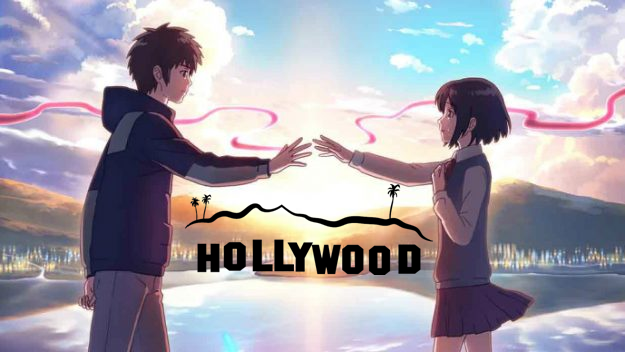Ask John: What are 2018’s Prospects for American Anime Adaptation?

Question:
This is a new year and it is officially clear that anime/animesque type series is now more or less accepted internationally in Hollywood films and television. Some series are critically acclaimed Avatar: The Last Airbender, Legend of Korra, Voltron: Defenders of The Realm, Castlevania series, Animatrix, Teen Titans, Ultimate Spiderman, Spiderman Animated 2017. There are also some good live action anime inspired movies like Matrix Trilogy, Kill Bill, Scott Pilgrim vs The World, Edge of Tomorrow, Avatar (James Cameron), Star Wars VII and VIII (this is my opinion) and of course there is some hit and misses live action films/series that can do a lot better like Priest, The Last Airbender, Ghost In The Shell, Michael Bay’s Transformers, G.I Joe‘s two live action movies, Into The Badlands. with the upcoming Batman Ninja anime and James Cameron’s Battle Angel Alita (which I pray doesn’t flop at the box office) how does animesque fare for now in the future?
Answer:
Ample evidence has demonstrated that these days Hollywood affiliated movie production studios are very skittish about investing in unknown stories & concepts. Remakes including the live-action Beauty and the Beast, It (2017), Flatliners (2017), Murder on the Orient Express (2017); delayed sequels including Jumanji: Welcome to the Jungle, xXx: The Return of Xander Cage, Blade Runner 2049, T2: Trainspotting; and resurrections of long-dormant franchises including Baywatch, Ghostbusters, and CHiPs seem to get more support and promotion than original concept or story films like Wind River, Downsizing, Roman J. Israel, Esq., The Belko Experiment, and Colossal. (Note that I’m not saying that films of the later category don’t get support and publicity; they just get less of it by comparison.) Considering the contemporary intense competition for audience spending on entertainment and the ever-increasing investment necessary to produce feature films, major studios are naturally prioritizing safe investments over wild risks. Now that anime has had a relatively mainstream American profile for roughly twenty years and a number of live-action manga adaptations have reached American screens, including Sony’s Ghost in the Shell and Netflix’s Death Note, anime is no longer an unknown concept. Despite the cult popularity of Stephen Universe and Voltron: Defender of the Universe, no recent American anime-inspired production has become a massive breakthrough hit. However, recent American productions based on or inspired by anime have consistently proven profitable, albeit mildly. The absence of a smash hit to inspire quick imitation is likely to prevent any foreseeable explosion in American manga adaptations, but consistent profitability will surely encourage Hollywood to continue trying.
I don’t anticipate a significant change in American adaptation of anime and manga this year, meaning specifically that I don’t anticipate an appreciable increase or decrease. Anime and manga adaptations have proven themselves viable enough that Hollywood won’t abandon the well. Even if anime and manga are still a very niche market, adaptations of stories that have proven marketable in foreign markets are still more attractive to Hollywood studio executive investors than entirely original, untested ideas and screenplays. With Alita: Battle Angel confirmed, although now delayed until December, and the possibility of other American adaptations on the distant horizon, including Your Name, Sword Art Online, Robotech, Naruto, Lone Wolf & Cub, and Vexille, fans may need to wait another year or two to see whether American studio development of manga and anime projects noticeably increases. As of 2018 Japanese pop media is still a Schrödinger’s box for Hollywood. As of 2018 it’s a viable experiment that still hasn’t quite proven itself worthy of greater investment.

